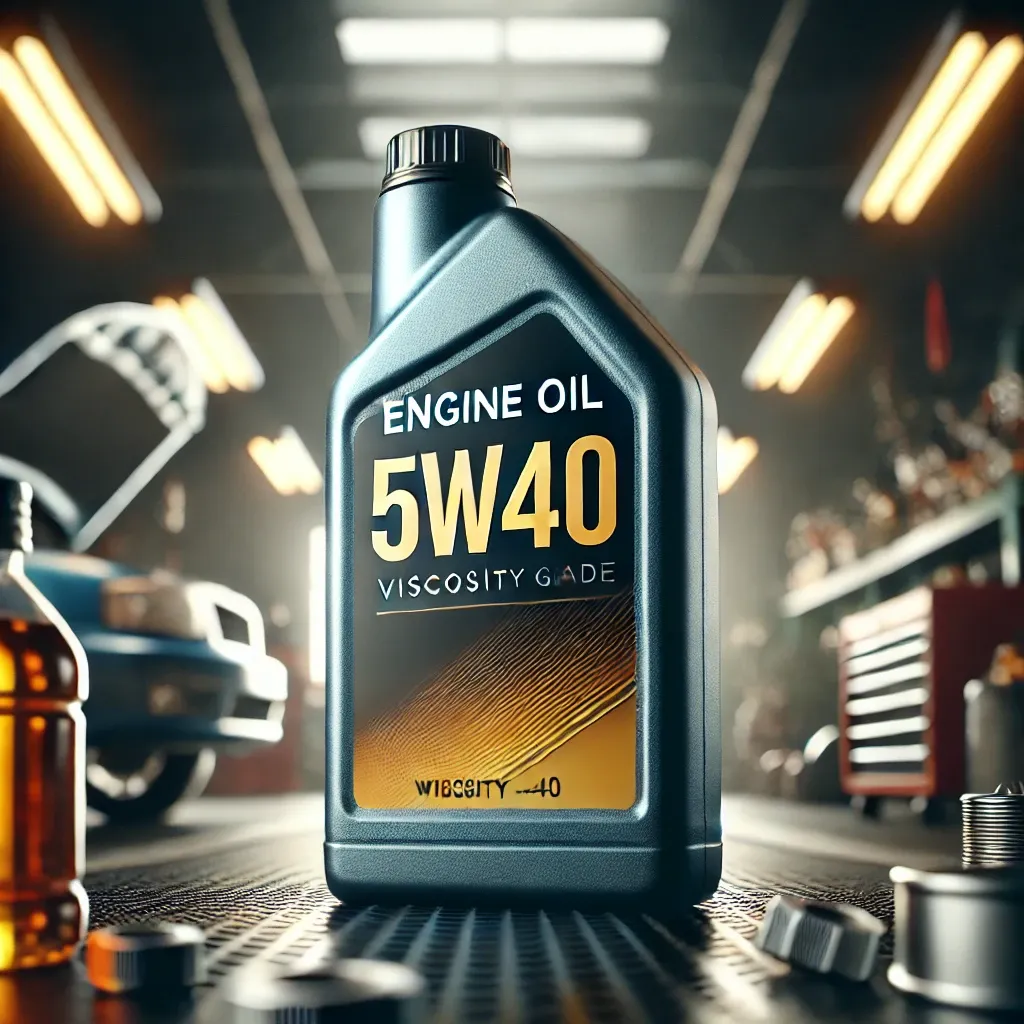Engine oil plays a critical role in the performance and longevity of your vehicle’s engine. One of the most commonly used engine oils is 5W40, but it’s important to understand its features and how it compares to other grades like 5W30. Whether you’re looking to understand its specific benefits, differences, or the ideal quantity for your vehicle, this article provides the insights you need.
Curious about the differences between engine oils like 5W40 and 5W30? Wondering which size is best for your car? Learn all about 5W40 engine oil, its uses, and how it compares to 5W30 in this comprehensive guide.
Engine Oil 5W40 Synthetic Oil
When you talk about engine oil 5W40, you’re referring to a multigrade synthetic oil that’s designed to work across a wide range of temperatures. The “5W” indicates the oil’s winter (low-temperature) viscosity, meaning it remains fluid in colder weather, while the “40” signifies the oil’s ability to resist thinning at higher temperatures.
What Makes 5W40 Synthetic Oil Special?
1. Enhanced Engine Protection
-
Longer Lifespan: Synthetic 5W40 oils are engineered to provide superior protection, reducing wear and tear on engine components, especially under extreme temperatures.
-
Improved Stability: Unlike conventional oils, 5W40 synthetic oils are more stable, resisting degradation over time, which is important for high-performance engines.
2. Superior Performance in High Temperatures
-
Synthetic oils like 5W40 maintain their viscosity in hot conditions, offering enhanced protection for engines that operate at high temperatures, such as those in performance cars or vehicles used for heavy-duty tasks.
-
This viscosity stability also helps in maintaining smooth engine operation and reducing engine sludge.
3. Lower Oil Consumption
-
Thanks to the synthetic formulation, engine oil 5W40 tends to evaporate less and break down slower than conventional oils. This means you may need to top up your oil less frequently.
4. Improved Fuel Economy
-
By reducing friction between moving parts, synthetic oils like 5W40 contribute to improved fuel efficiency, which can save money in the long run.
5. Longer Oil Change Intervals
-
Many synthetic oils, including 5W40, can last longer than conventional oils, reducing the frequency of oil changes.
Would you like to learn more about synthetic oils? Click here for more details.
Engine Oil 5W30 5W40 Difference
One of the common questions car owners have is the difference between 5W30 and 5W40 engine oils. Both are synthetic oils with the same low-temperature viscosity of 5W, but they differ in their high-temperature viscosity, making them suitable for different types of engines.
Key Differences Between 5W30 and 5W40
1. High-Temperature Viscosity
-
The key difference lies in the “30” and “40” ratings. 5W30 has a lower high-temperature viscosity compared to 5W40. This means that while 5W30 is ideal for moderate temperature conditions, 5W40 is more suited for high-performance engines or environments with extreme heat.
2. Suitable Engines
-
5W30 is often used in passenger vehicles with standard engine requirements and is recommended for everyday driving in mild conditions.
-
5W40, on the other hand, is typically recommended for high-performance vehicles, trucks, and vehicles that operate in hotter climates, or those used for towing or heavy-duty tasks.
3. Fuel Economy and Efficiency
-
5W30 oils tend to provide slightly better fuel economy due to their thinner consistency at high temperatures. However, the difference is minor and often negligible unless you’re driving in specific conditions.
-
5W40 oils, while providing better protection in high heat, might cause a slight drop in fuel efficiency due to their thicker consistency.
4. Engine Protection
-
Both oils provide excellent protection, but 5W40 offers an edge in terms of stability at high temperatures and severe driving conditions. It is more capable of maintaining its viscosity under extreme stress, making it a better option for performance engines or in hotter climates.
5. Oil Change Frequency
-
5W30 oils are typically used in standard vehicles with less demanding driving needs, so you may change the oil more often. 5W40, however, can last longer due to its higher viscosity and better heat resistance.
To explore more about 5W30 vs 5W40 oils, check out this comparison link.
Engine Oil 5W40 6L: What Does Size Mean?
Another consideration when buying engine oil is the quantity. Engine oil 5W40 6L refers to the amount of oil in the container, specifically 6 liters. Knowing the right quantity for your car’s engine is vital to ensure you don’t run into issues with under or overfilling.
Why Choose 6 Liters of Engine Oil?
1. Larger Vehicles
-
Larger engines, like those found in trucks, SUVs, or some performance cars, often require more oil. A 6L container is ideal for these engines, ensuring that the oil level remains within optimal range without needing multiple small bottles.
2. More Cost-Effective
-
Purchasing oil in larger quantities, like 6 liters, is generally more economical than buying smaller amounts. If you plan to change your oil multiple times, the 6L option is often more budget-friendly.
3. Convenience for Garage Maintenance
-
For DIY car maintenance enthusiasts, having a 6L container of engine oil on hand makes oil changes easier and faster without running out of oil midway.
4. Environmental Impact
-
By purchasing larger quantities, you reduce the need for multiple plastic bottles, making it a more eco-friendly option.
5. Compatibility with Engine Specifications
-
It’s always important to check the manufacturer’s recommendations for the exact amount of oil your engine needs. If your car requires 6 liters, this size is perfect, ensuring that your engine gets the right amount of oil for optimal performance.
For a detailed guide on oil container sizes, visit this link.
Conclusion
In conclusion, engine oil 5W40 is a highly versatile and performance-oriented option for many vehicles, particularly those operating in high-temperature environments or those requiring more robust engine protection. When choosing between 5W40 and 5W30, consider your vehicle’s specifications and typical driving conditions. Additionally, opting for larger oil quantities, like 6L, can be a more economical and convenient choice for regular maintenance. Understanding these differences and benefits ensures that you can make an informed decision and provide the best care for your engine.
Remember, whether you’re after synthetic oil, considering the 5W30 vs 5W40 difference, or need to buy the right quantity, it’s all about finding what fits your vehicle’s needs.






